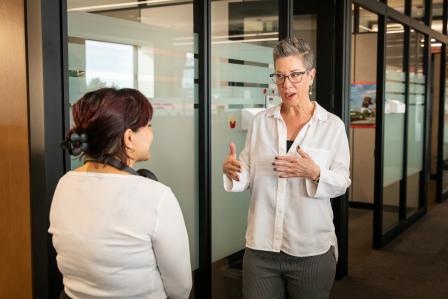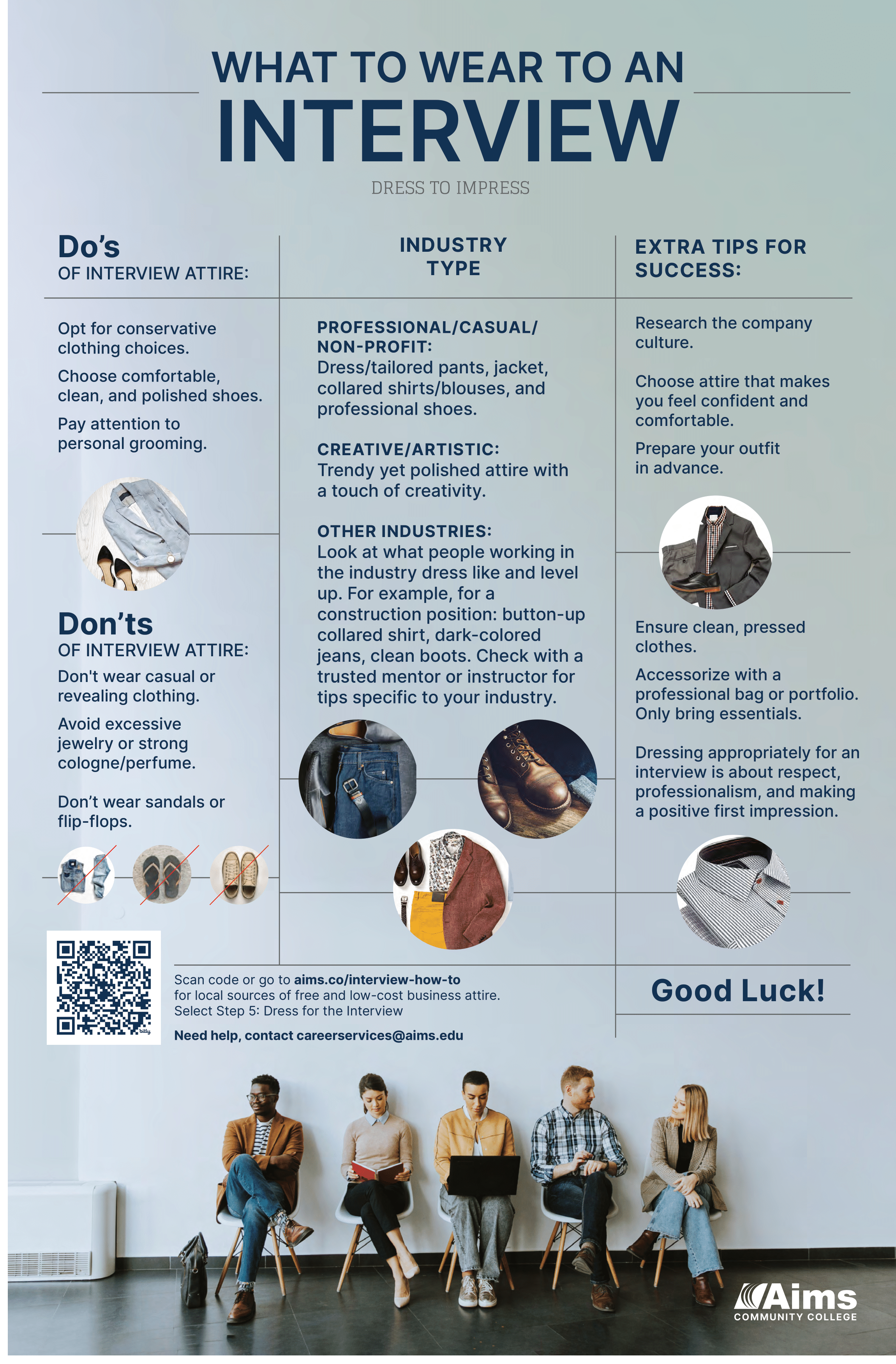One of the best ways to prepare for an interview is to practice. Anticipate interview questions and write out your responses to those questions to reduce stress during an interview.
After you have written your responses, rehearse your responses out loud in front of a mirror or with a friend (ask for feedback). Below are some potential interview questions and a quick internet search will provide more sample interview questions for your specific field.
- Tell us about yourself.
- Tell us what you know about our organization.
- Do you consider yourself successful? Why?
- Why do you want to work for this organization?
- Are you a team player?
- What motivates you to do a good job?
- Tell us about your ability to work under pressure.
- What experience do you have in this field?
- Tell us about a time when your values and the values of an organization did not align.
- How have you handled a disagreement with your supervisor/co-worker?
- Tell us about a time when you had to work with a difficult person.
- Tell us about a time you made a mistake.
- Describe a difficult decision you had to make.
- Tell us about one of your greatest successes.
Writing out your responses to potential interview questions takes time but it will help ensure you won’t forget to mention any of your talents, skills and abilities.
The CAR technique (Context, Action, Result) is a powerful method to help you craft compelling responses during job interviews. This approach allows you to effectively showcase your skills and accomplishments by breaking down your experiences into three key components:
- Context: Start by setting the scene. Briefly describe the situation or challenge you faced. This gives the interviewer an understanding of the environment and the scope of the task.
- Action: Detail the specific actions you took to address the situation. Focus on your contributions and the steps you implemented to solve the problem or complete the task.
- Result: Highlight the outcomes of your actions. Emphasize the positive results, whether it's a tangible achievement, a positive impact, or a lesson learned.
Using the CAR technique, you can confidently articulate your experiences, demonstrate your problem-solving abilities, and show how you can add value to the company. Remember to be concise and relevant, tailoring your examples to the job you're applying for.
 Interviewing can be stressful, even for seasoned professionals. The best way to succeed and reduce stress is to be well-prepared. Follow these steps to properly prepare for an interview.
Interviewing can be stressful, even for seasoned professionals. The best way to succeed and reduce stress is to be well-prepared. Follow these steps to properly prepare for an interview.